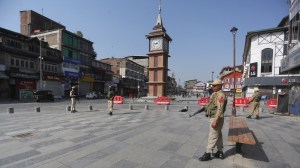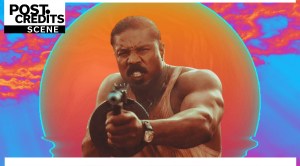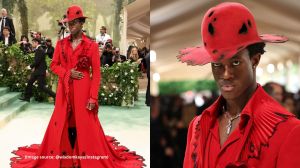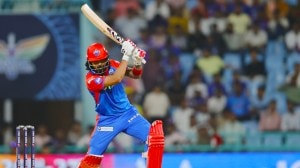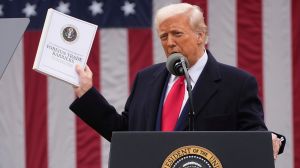Click here to follow Screen Digital on YouTube and stay updated with the latest from the world of cinema.
Universal Language movie review: Matthew Rankin’s film is a whimsical fever dream in Farsi
Universal Language movie review: If David Lynch ever had tea with Abbas Kiarostami in a Winnipeg Tim Hortons redesigned by Wes Anderson, the resulting fever dream might look something Universal Language.
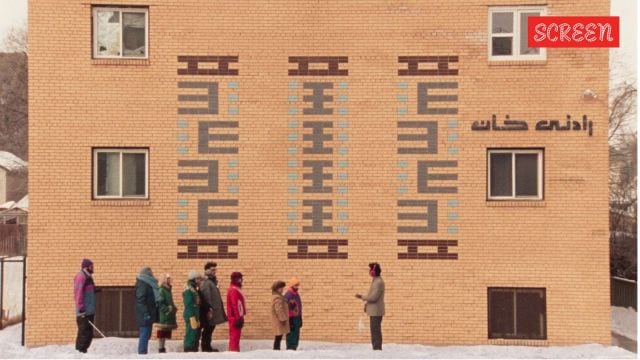 Universal Language movie review: Tour guide Massoud is played by Pirouz Nemati, who is also the co-writer of the film
Universal Language movie review: Tour guide Massoud is played by Pirouz Nemati, who is also the co-writer of the filmSome cities you remember for their architecture, others for their people, a few for the memories they hand you. And then there are cities like the Winnipeg of Universal Language, which don’t merely exist—they unfold. Like a recurring dream mistaken for childhood, or a memory of a place you’ve never been but are certain you’ve known. Matthew Rankin’s new film doesn’t just present a city; it invents a version of one, layering language, culture, history, and nostalgia into a strange, delightful, and occasionally disquieting hallucination.
What Rankin does here cannot easily be described as storytelling. It’s closer to cinematic cartography—a psychogeographic sketch of a place filtered through a lens fogged by longing and gently absurdist humour. But within the folds of this idiosyncratic cityscape lies a quietly moving meditation on identity, exile, memory, and the odd rituals of cultural inheritance.
In Rankin’s Winnipeg, everyone speaks Farsi. The Tim Hortons serve tea from samovars. Tour groups are guided through urban myths with the devotion reserved for shrines. There is a kind of sweet madness to it all, but it never feels like parody. It’s not a gimmick. It’s the spine of the film’s poetic logic. This is an imagined Winnipeg filtered through an Iranian lens—one that perhaps never existed, and yet, emotionally feels true in ways reality often doesn’t.
The audacity of this linguistic and cultural re-mapping is striking, especially given the film’s playful tone. Universal Language borrows freely and fondly from Iranian New Wave cinema—particularly the works of Abbas Kiarostami—and fuses them with the deadpan whimsy of Jacques Tati and the meticulous framing of Wes Anderson. The result is a world where the surreal feels everyday, and the everyday is re-enchanted.
There’s no central plot as such. Instead, Universal Language sprawls gently through several loosely connected narrative threads. Two children, Negin (Rojina Esmaeili) and Nazgol (Saba Vahedyousefi), discover a wad of cash frozen in a sidewalk and embark on a slow, dreamy quest to retrieve it. Their journey, as delicate and unhurried as the film itself, becomes a kind of urban fable—part treasure hunt, part lesson in persistence, and perhaps a commentary on how value becomes tangible only when frozen in place.
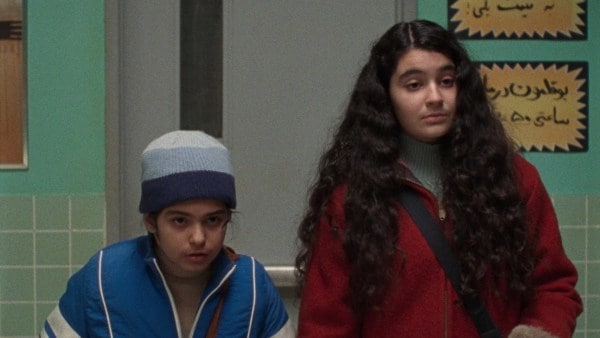 Negin (Rojina Esmaeili) and Nazgol (Saba Vahedyousefi) in a scene in Universal Language
Negin (Rojina Esmaeili) and Nazgol (Saba Vahedyousefi) in a scene in Universal Language
Elsewhere, Massoud (Pirouz Nemati), an Iranian tour guide with an unshakable commitment to storytelling, leads a group of tourists through Winnipeg’s most baffling landmarks. One stop: a bench where a briefcase has supposedly been sitting, untouched, for decades. His speeches are florid, exaggerated, and often riddled with half-truths—yet his belief in them is absolute.
Then there’s Rankin himself, appearing as a version of… himself. His character returns to Winnipeg to reconnect with his estranged mother, whose apartment may or may not still exist. This thread is perhaps the most emotionally resonant, threading questions of memory, family, and the fear that home might forget you before you remember to come back.
There’s an exquisite precision to the film’s visuals—symmetrical frames, deliberate camera movements, and compositions that find unexpected beauty in the banal. But Rankin resists turning style into spectacle. The aesthetic works in service of a deeper inquiry: how does a city shape our emotional language? What remains when the language itself is shifted?
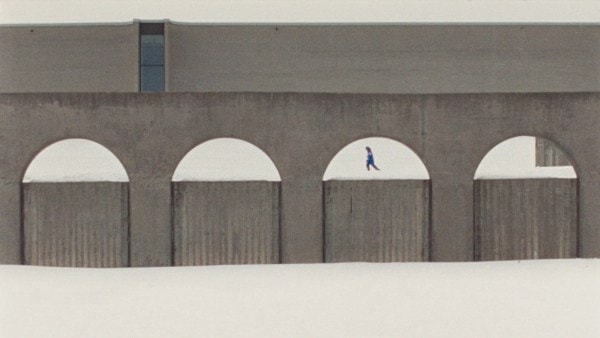 Isabelle Stachtchenko did the cinematography of Universal Language
Isabelle Stachtchenko did the cinematography of Universal Language
Despite the title, Universal Language is not a film obsessed with speech. It’s just as interested in what can’t be said. The dialogue is sparse, often in Farsi, sometimes French—but what binds the film isn’t its words. It’s the silences in between. The looks exchanged. You’re meant to feel your way through it, not decode it.
And yet, for all its formal eccentricities, Universal Language is surprisingly tender. Its humour is gentle, often arising from the absurd sincerity of its characters. Its melancholia is soft-edged, like the blur of a city seen through the frost of a bus window.
Let’s be clear: this isn’t a crowd-pleaser. It’s slow, oblique, and often surreal. But for those willing to surrender to its rhythm, it offers something rare—a cinematic space that doesn’t demand your attention, but quietly earns it. Its refusal to explain itself, its cultural cross-pollination, its childlike surrealism—all contribute to an atmosphere that’s difficult to describe and harder to forget.
Universal Languge trailer:
By the end, you may find yourself unsure of what exactly you watched, and yet absolutely certain that it meant something. That, in a way, is what makes Universal Language so special. It doesn’t give you meaning in a neat box. It plants it like a seed, and trusts you to water it.
Matthew Rankin’s Universal Language is a cinematic snow globe—artificial, enchanting, quietly profound. It invites you to peer inside, shake it gently, and watch as the flakes of culture, memory, and absurdity swirl together into something beautiful. It’s a film that resists summary, resists clarity—and in doing so, becomes something deeply human.
Universal Language
Universal Language Director – Matthew Rankin
Universal Language Cast – Rojina Esmaeili, Saba Vahedyousefi, Matthew Rankin, Pirouz Nemati
Universal Language Rating – 3.5/5
More Entertainment


Must Read
Apr 24: Latest News
- 01
- 02
- 03
- 04
- 05









